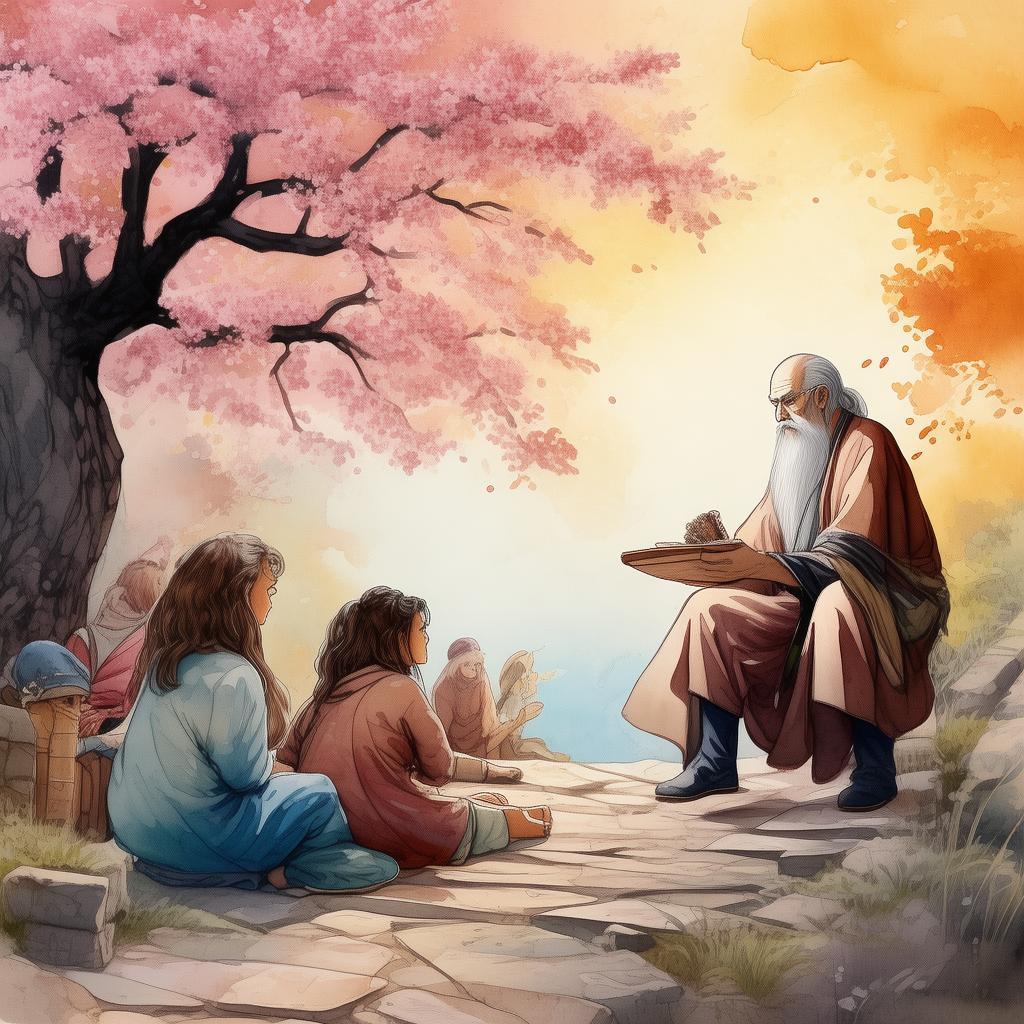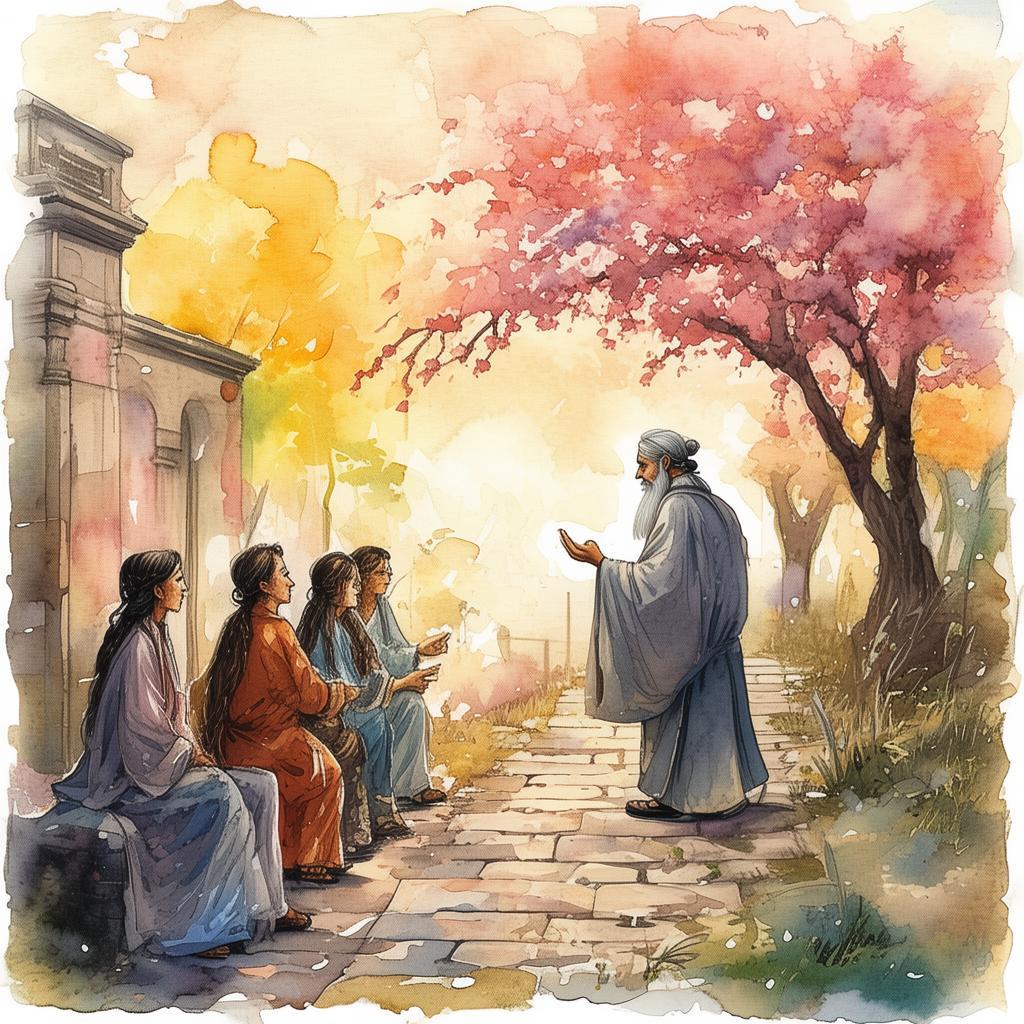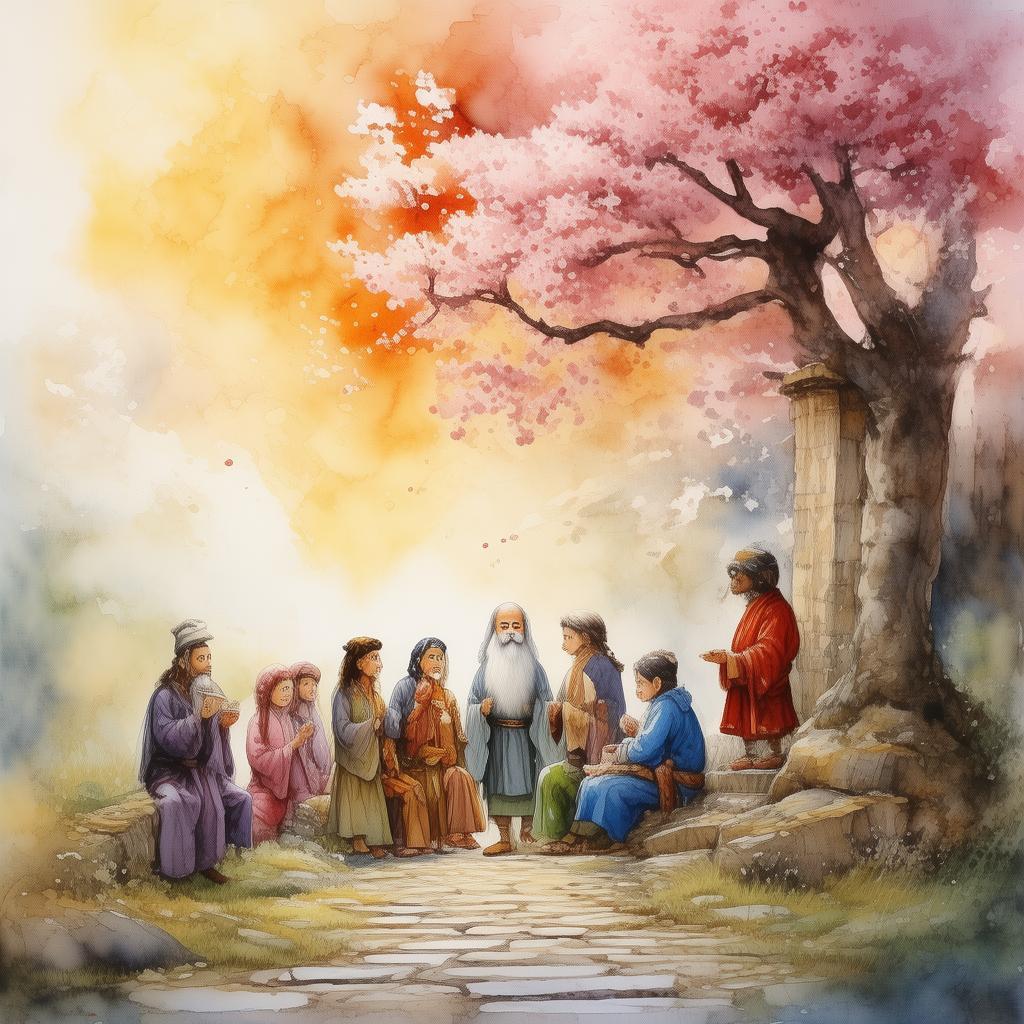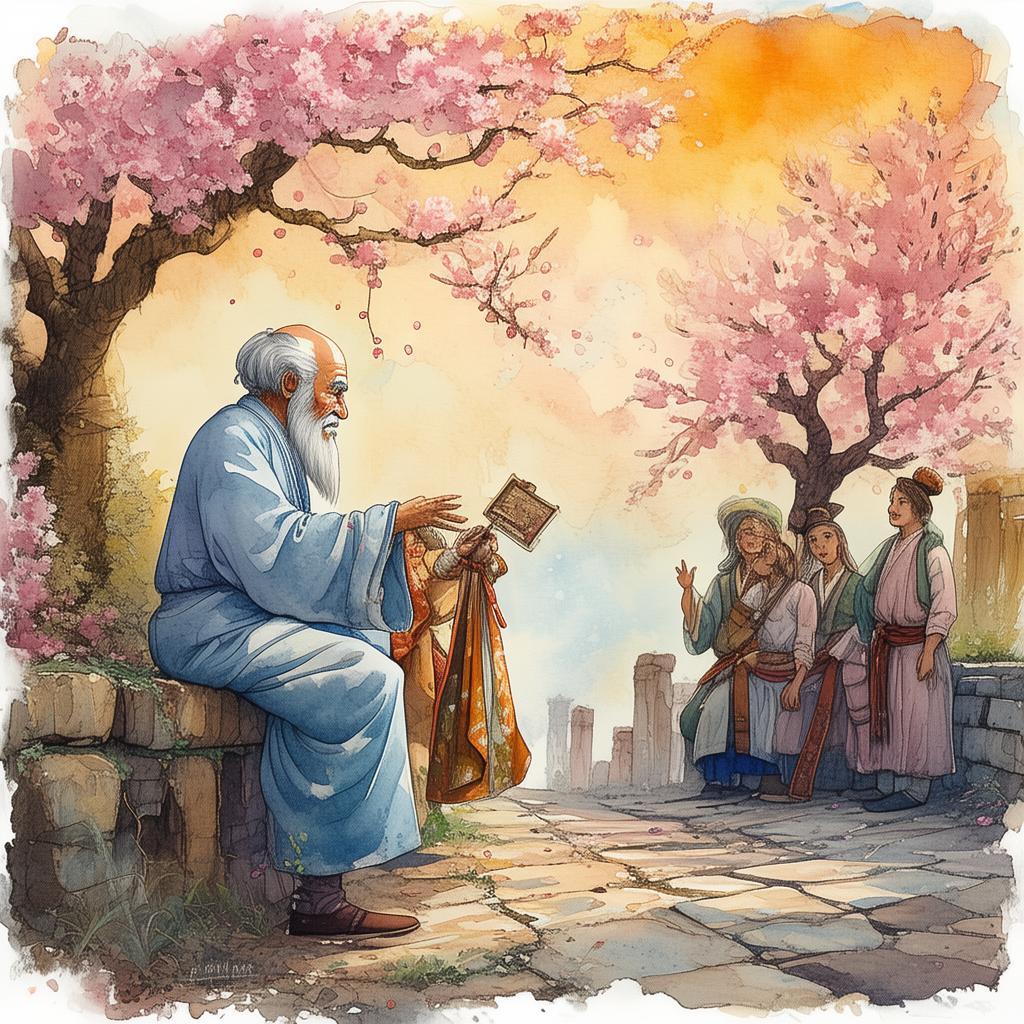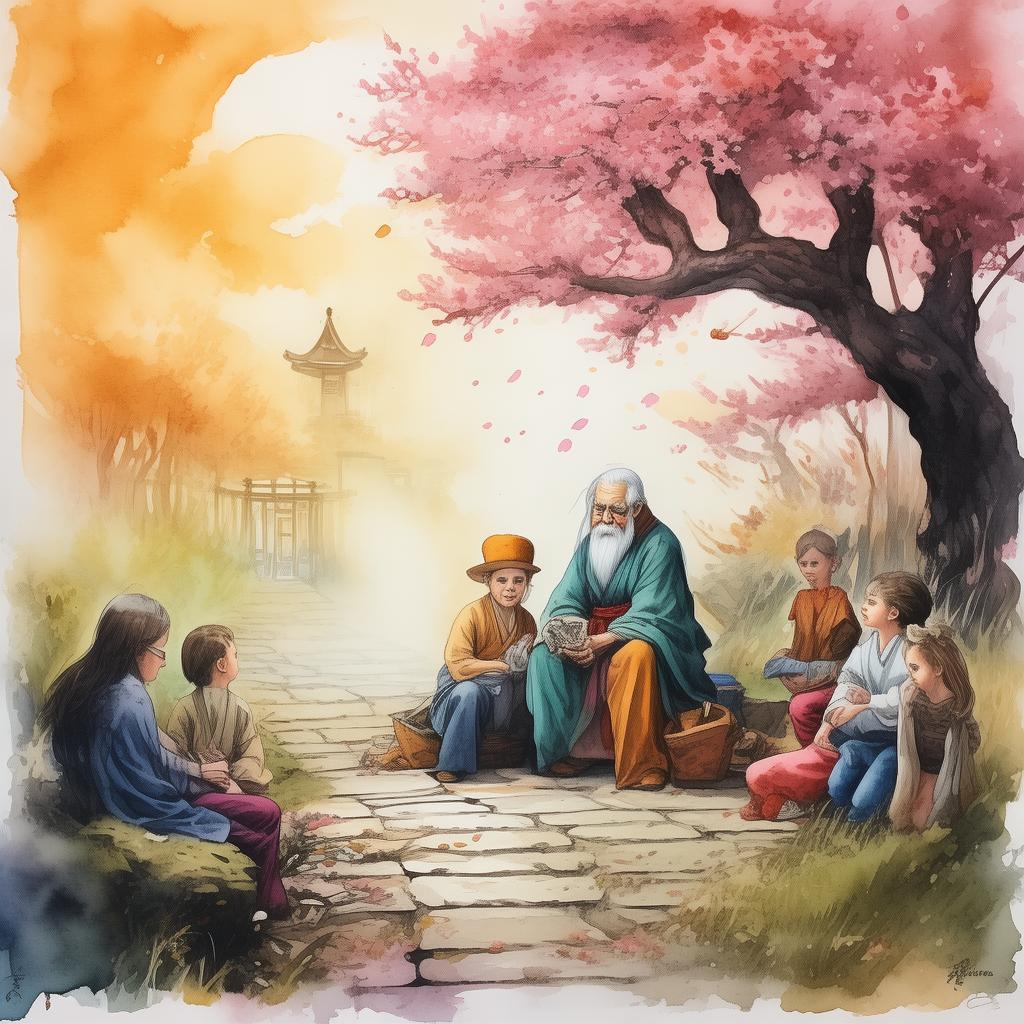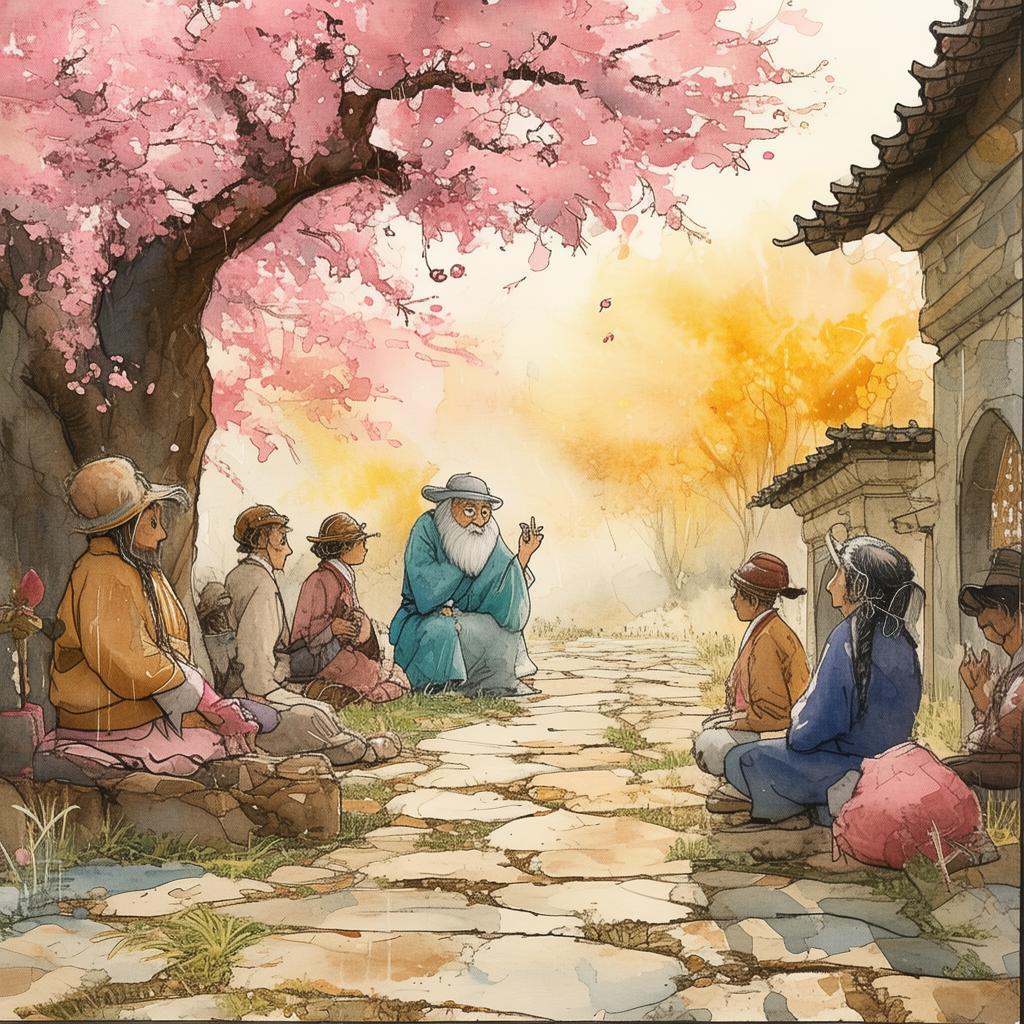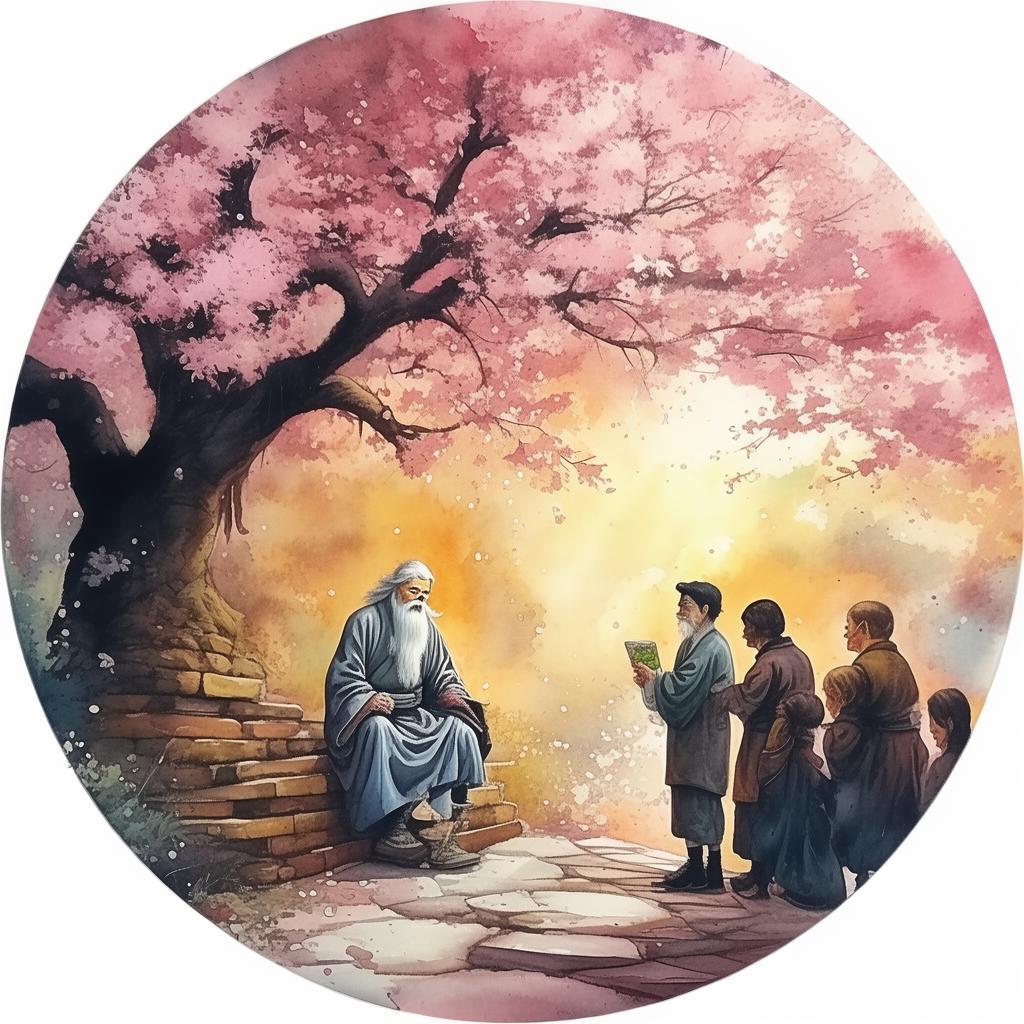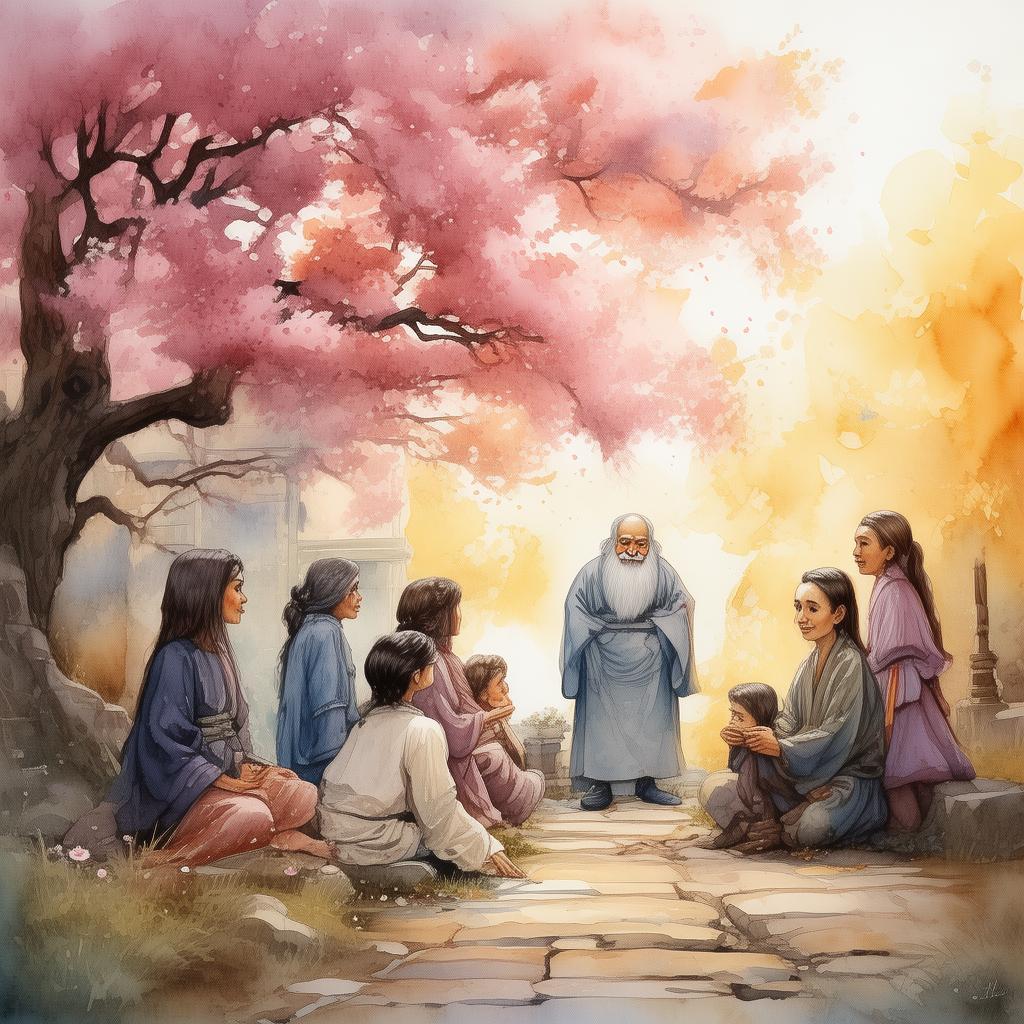Transforming Wisdom: The Journey of a Modern Scholar
In the ancient city of Chang'an, there stood a grand academy known for its traditional teachings and scholars who had dedicated their lives to the pursuit of knowledge. Among these scholars was a man named Li Qing, known for his profound understanding of classical texts and his adherence to the ancient ways of learning.
Li Qing was a respected figure among his peers, but deep within him, there was a growing unease. The world outside the academy walls was changing rapidly, and he felt the weight of tradition pressing down on him. The young scholars of his time were eager to learn about the new sciences and technologies that were sweeping the land, but Li Qing remained steadfast in his belief that the ancient wisdom was the only true path to enlightenment.
One day, a young student named Ming came to Li Qing with a proposition. Ming had heard tales of a mysterious teacher who had the ability to transform one's understanding of the world through a method he called "quick change." Ming believed that this teacher could help Li Qing see the value in the new knowledge that was being embraced by the youth of the land.
Intrigued but skeptical, Li Qing agreed to meet this teacher. The teacher, known as Master Hua, was a man of few words but profound insight. He listened to Li Qing's concerns and then, without any fanfare, began to teach him in a manner that was both unconventional and enlightening.
Master Hua showed Li Qing texts that were not of the ancient past but of the present. He spoke of mathematics, astronomy, and the mechanics of the world around them. Li Qing, at first, was resistant, but Master Hua's explanations were so clear and logical that Li Qing found himself questioning his own beliefs.
The transformation was not immediate. Li Qing struggled with the new ideas, feeling as though he was being pulled in two directions. His traditional training had instilled in him a deep respect for the past, while the new knowledge was challenging his very understanding of what it meant to be a scholar.
One evening, as the moon hung low in the sky, Master Hua took Li Qing to the edge of the city. They stood there, looking out over the bustling streets below. "Do you see that?" Master Hua asked, pointing to a group of young people gathered around a street corner, their faces illuminated by the glow of lanterns.
Li Qing nodded, his eyes wide with curiosity. "What do you see, Master Hua?"
"I see a world that is changing, and with it, the role of the scholar. The true wisdom of a scholar is not in knowing everything that has been, but in understanding how to adapt to what is and what will be," Master Hua replied.
Li Qing pondered these words as he returned to the academy. He began to incorporate the new knowledge into his teachings, and the students responded with excitement. They saw in Li Qing a man who was not bound by the past but was open to the possibilities of the future.

The transformation was not without its challenges. Some of his fellow scholars criticized him for straying from the traditional path. But Li Qing stood firm, knowing that the true wisdom lay in embracing change and finding new ways to understand the world.
Years passed, and Li Qing's teachings spread far and wide. He became known not only as a scholar of the ancient texts but also as a pioneer of modern education. His story became a legend, a tale of a man who had the courage to transform his own understanding and, in doing so, transformed the world of education.
The journey of Li Qing, from a traditional scholar to a modern educator, serves as a timeless lesson on the importance of embracing change and the endless pursuit of wisdom. His transformation reminds us that the true power of education lies not in the knowledge we possess but in the ability to adapt and grow.
✨ Original Statement ✨
All articles published on this website (including but not limited to text, images, videos, and other content) are original or authorized for reposting and are protected by relevant laws. Without the explicit written permission of this website, no individual or organization may copy, modify, repost, or use the content for commercial purposes.
If you need to quote or cooperate, please contact this site for authorization. We reserve the right to pursue legal responsibility for any unauthorized use.
Hereby declared.


